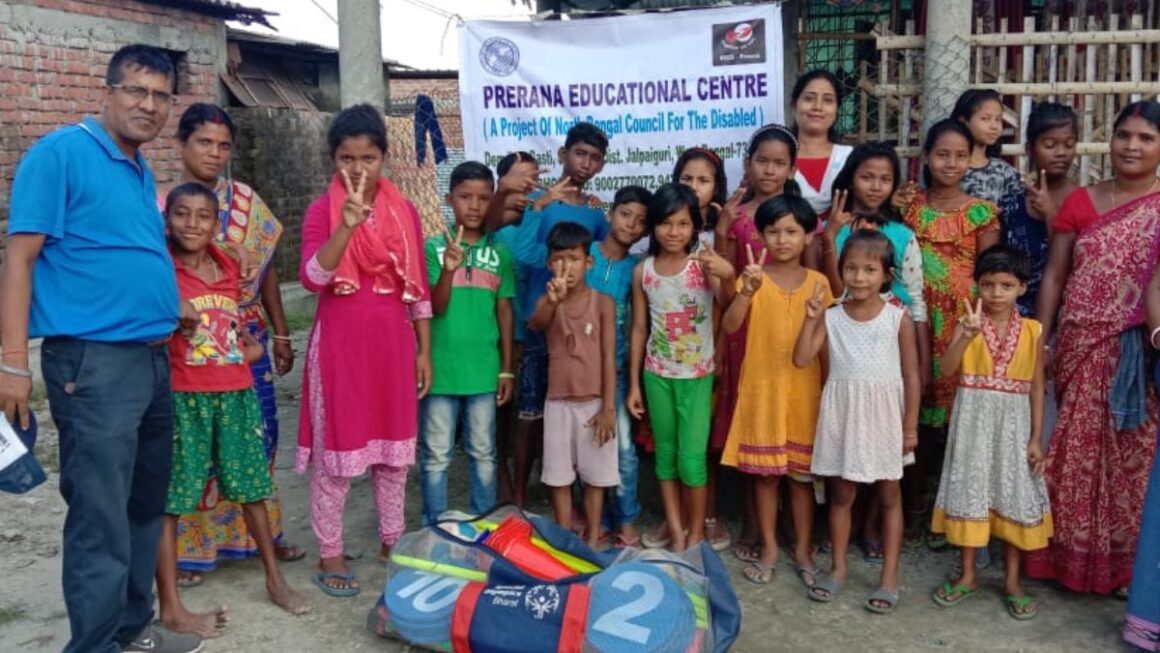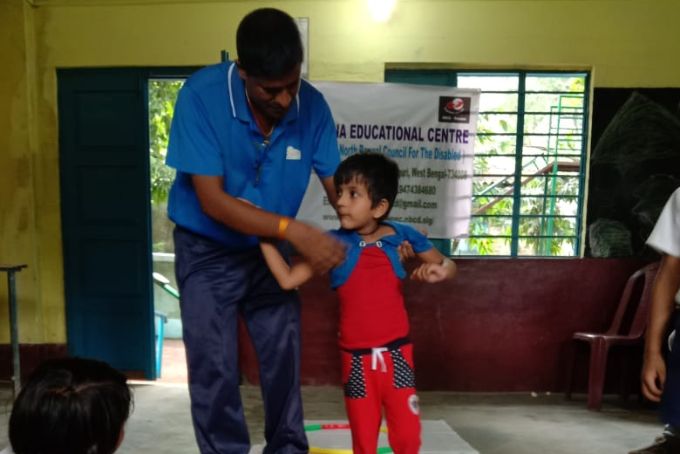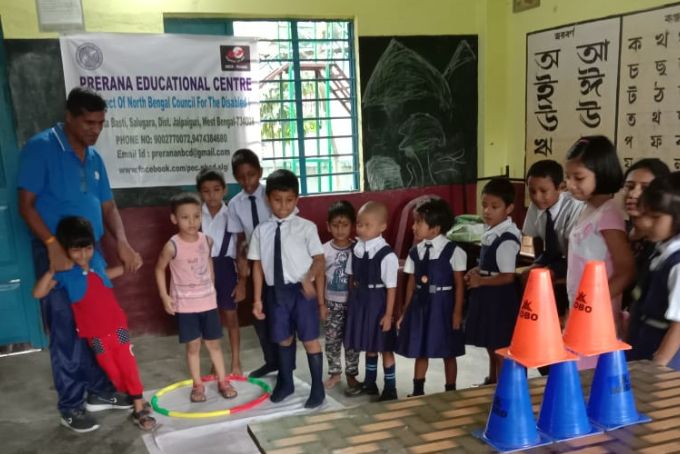A tragic accident when I was 12 left me partially blind. I fell onto the barbed wire at a military event. My father was in the army then. I lost one eye instantly and was left with partial vision in the other that has slowly deteriorated over the years.

I’ve always loved sports, and my visual impairment has not stopped me from becoming an athlete. I am an active member of the cricket association for the blind in India. People joke that when we lose one of our senses, we make up for it with 10 others like superheroes. Visually-impaired cricketers in India play the game with as much skill and agility as the able-bodied. We catch the ball, just like that.
I believe that sports has the power to help people with disabilities overcome the impossible, and it is best that training starts from a young. My passion led me to join the disability sector back in 2002, using sports to help children with special needs develop their motor and social skills. I’ve also served as a volunteer with Special Olympics since 2005, helping to organize games and sporting activities for children with intellectual disabilities in rural villages across India, reaching out to the most isolated amongst us

Over the years, I have met so many children who have inspired me. I recall meeting young Nika. Due to a neurological condition, she had abnormal muscle contractions in her arms and couldn’t bring her hands to her body. I started with simple activities like getting her to grip a ball. At the start, she struggled to even hold the ball in her hand. Slowly, we progressed to gently squeezing and then releasing the ball. Week after week, I watched her grow. Now, Nika has started training in bocce. Beyond her physical development, the confidence and happiness seen in the child and her family has been the most valuable of all.
Another child I remember from two years ago is Ritil. She was overweight, struggled with balance and flexibility, and was very meek. We introduced her to games where she had to jump, cross barriers, strike balls, throw and catch. Not only did she lose weight over time, but she also became more flexible, fitter, and more confident, and independent. She started doing certain tasks by herself, without her mum’s help.
The activities in the Young Athletes Program are so simple, yet so effective. Once, I got the children to toss coins as an activity. It improved their focus and agility and helped them learn the concept of heads and tails, as well as recognizing numbers.
I am now 46, and I’ve lost my sight completely for more than two years. These days, instead of demonstrating the activities myself, I use videos or ask an assistant to help. I am also unable to directly observe the reaction of the children when they do the activities, so I ask the parents to describe them to me. It’s a blessing in disguise because the parents are more involved, and it enables me to get their support to assess if the activities are working and plan the next steps for the children.
I have a 12-year-old daughter and a 10-year-old son. Before the Covid-19 pandemic hit us, they used to come with me for Young Athletes activities, playing together with our Special Olympics athletes. I want them to know that there are no differences between people with and without disabilities. There is something to learn from everyone. As a father, I totally understand that no parent wants their child to be isolated or left behind. That is what keeps me going as a volunteer – to do the best for these children.

When I lost my sight, I was also spurred to convert all our Young Athlete resources and toolkits into audiobooks. I got the help of another volunteer in Bengal who is also visually impaired. This project has proven to be extremely useful, not just for those who have problems with sight, but for hundreds of our parents in the rural villages who are not able to read. It has been convenient even for Young Athletes coordinators and volunteers who are on the go and prefer to simply play the recording on their phones while traveling.
I can’t wait to see the day that every young athlete has the opportunity to develop into proud, confident representatives of India on the world sporting stage. It is common for countries to invest loads of resources to develop professional athletes. At the Olympics, every athlete is accompanied by a professional team of advisors, coaches, nutritionists, and so on. The world must understand that athletes with intellectual disabilities deserve the same, and more.










